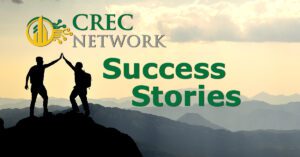“Most of you have heard of MedMen, this is a giant within the industry. So how is it possible that something so large, could have overlooked something so important, as a change in ownership on their license application?” – Jared Younker
In this webinar recap, we would like to extend our knowledge of the road to cannabis licensing acquisitions and the insights from our team of compliance experts to the cannabis industry.
To avoid these major issues in the cannabis space, a client needs to ensure they have an effective and proper business structure, as well sufficient working capital for the permits, licenses, tenant improvements, and compliance management to support long-term success.
Our top four reasons for cannabis applications denial:
- Failure to disclose convictions or full information of the owners managers financial interest holders.
- Failure to provide an accurate detail of the premises.
- Failure to acquire all needed licenses and permits for the location.
- Failure to comply with state regulations and requirements.
Contact our compliance team with any other questions. Please review our recording and transcript below for the full details.
About Presenter: Jared Younker
 As a published author/editor for cannabis industry-specific books (“IRS Code 280e Simplified” and “420 Delivery: A Complete Guide to Starting a Medical Marijuana Delivery Business in California”), Jared has a clear understanding of starting cannabis businesses and managing compliant operations. Jared was featured in OCWEEKLY’s 2017 Rolling Paper 420 Guide of “Up-and-coming entrepreneurs”, and has been invited to speak on compliance with organizations NORML, Woman Grow and Hemp Radio.
As a published author/editor for cannabis industry-specific books (“IRS Code 280e Simplified” and “420 Delivery: A Complete Guide to Starting a Medical Marijuana Delivery Business in California”), Jared has a clear understanding of starting cannabis businesses and managing compliant operations. Jared was featured in OCWEEKLY’s 2017 Rolling Paper 420 Guide of “Up-and-coming entrepreneurs”, and has been invited to speak on compliance with organizations NORML, Woman Grow and Hemp Radio.
VIDEO: Why Cannabis Applications Fail – Webinar Recording
Read the article referenced in the webinar where multistate marijuana operator MedMen Enterprises was rejected for a conditional-use permit needed to open a planned retail outlet in Pasadena, California
Webinar Transcript – “Why Cannabis Applications Fail”
by Jared Younker
Hello everyone we’re going to go ahead and get started.
I’d like to thank you for your time. This is the CREC Compliance webinar. Today we’re going to discuss why cannabis applications fail. My name is Jared Younker and I am the Chief Compliance Officer for CREC Compliance. We work directly with property owners and operators, including real estate agents and investors and the like, in obtaining the required cannabis land use and municipal state permitting and licensing.
Shortly put, we do all things cannabis license related and that extends into acquisitions as well. Certainly the real estate portion is a major component of what we do and that’s most likely why you received our emails and are on this webinar. For that I thank you.
So let’s talk from a 30,000 foot elevation here on why some cannabis applications fail, while others succeed. We’ve poled our clients as well as our lead base and it seems as though the overwhelming and prevailing conclusion is that the answer is corruption and bribery.
Now, certainly we have seen the lawsuits brought by those who had applied for licensing in certain municipalities, but didn’t see a license materialize. We’ve seen this happen time and time again, so obviously there is a component of corruption and bribery within the industry, so far as licenses are concerned. But what’s not often spoken about is the applicant’s vulnerability in the licensing process and so that’s what we’re going to dive into a little bit here.
Medmen application rejected in California City
I’m going to pop out of the presentation and show you the article that actually made me think it would be a good idea to host this webinar. This MJ Biz Daily article about California City rejecting a MedMen application for a cannabis store license. As you read in it, it goes into detail about their Pasadena, California application and how and why it was rejected, in particular because of a material change in ownership and/or management in MedMen.
Now most of you, I’m sure, have heard of MedMen-this is a giant within the industry. So how is it possible that something so large could have overlooked something so important, as a change in ownership on their license application? We’re going to get into that a little bit. First, let’s jump back over here into our presentation. So what we’ve outlined are three critical components to what end up affecting the outcome of an application for municipal or state cannabis. And that would come down to: ownership change, business instability, and incorrect application information.
Now this is a highlight from that article. We’re going to dig a little deeper and then a little deeper further so that we can really understand what your clients might be up against, or if I have any applicants on the webinar, what you guys are up against when it comes to applications for license. Look at this bottom paragraph. According to the letter, nine out of ten MedMen owners listed on the company’s original application had to have changed, since now these applications oftentimes can range upwards of six, eight, nine months sitting with the municipality before a decision is made as to whether or not a license will be issued during that time.
The change in ownership for one of these applicants could quite literally derail the entire application. How could that be? Well let’s take a look at what the state of California considers the definition of a cannabis license owner. It’s a doozy and for those of you who don’t have the screen share capabilities going on right now, as I had to greatly reduce the size of the font in order to get this all to fit on one screen.
To summarize some of the key points here, an owner would be someone with 20% or more interest in the person or entity applying for a license. An owner would also be somebody who engages in 20% of the profits of the cannabis business. Further, an owner could also be somebody who participates in the direction control or management of the person applying for a license and that would obviously extend to the entity applying for a license as well.
Changing ownership through the municipality in the state
What an experience it must be to put in an application today and think in 6 to 9 months from now, possibly even 12 to 18 months from now, that if there is a change in ownership-maybe a new investor comes along, maybe one of the managers walks away, perhaps there’s an issue with funding, and we have to cut some people from the team, any one of those actions. If not handled properly through the municipality in the state, it could end up subjecting the application itself to being a non-issue on the license.
Let’s talk a little more about ownership changes first and foremost. I have to admit the bread and butter of the clients that we deal with have already attempted to form their own business entities. We see a lot of Legal Zoom come into the office, and certainly not to throw any shade at Legal Zoom, but one of the things we’ve realized in the office, is that Legal Zoom is not a competitor for us, but rather a complementary business service. And I say that because of how many entity formations we end up having to basically go back and fix as a result of Legal Zoom.
When it comes to ownership changes. certainly the first point that we would want to bring about is that we would advise you and your clients to consult with a professional to structure the transaction correctly, right from the start. A proper corporate structure needs to be considered, especially for the liability and investor purposes.
Next point, avoid at all costs, making the mistake that MedMen made, which is a change to ownership, and as we’ve seen in the definition of ownership that can extend to management while an application is in process with the municipality or the state. I want to point out that it’s not always such a black or white situation. On the municipal level it is at the discretion of the municipality to decide whether or not, let’s say, a change of ownership, would be acknowledged while an application was in process.
Now some municipalities will allow this and have a path forward, other municipalities will not allow this and they will insist that either the original application be pulled and a new one remitted, or the original application be carried out until it issues a full permit or license at which case that would be the earliest in which we could change the ownership.
Business Instability
This was the number two point that we want to avoid when it comes to the discussion of why applications and licenses are denied and or possibly revoked after issuance. And that second part is very critical here for my transactions that involve a license acquisition. So for those of you who may or may not be familiar with with how that works, typically licenses cannot be transferred themselves. Some municipal licenses can, however, at the state level, typically that is not possible. Instead what we are talking about is the acquisition of the entity, which holds the license.
We’re going to cover some of the bigger issues that we see with a lot of the deals in the cannabis industry. The first issue obviously being the avoidance of lawsuits. Investor issues, certainly that would be a strong contender for number one as well. The timeline it takes to get through the licensing process oftentimes is problematic for investors, and so what we end up with is a high failure rate for projects because of a lack of accurate financial forecasting and budgeting.
We pretty much beat this horse to death, but changes in management, we’ve seen that this is oftentimes in conjunction with frequent employee turnover. Layoffs also would be a major part of that, and something that this year in 2020 the cannabis industry saw quite a bit of. Another indicator for instability of business, would be the selling off of business assets. I’ve listed some issues reflecting financial health of the business, which would include all of these. And my most important, at the bottom, the failure to be current with tax filings. And again, referring back to these transactions for those of you interested in the transaction of licensed acquisitions, it is without a doubt a requirement across the board that any entity attempting to sell a part of itself or its securities to another person or entity, must be current with their tax filings.
Compliance Tip #1: Proper Structuring and Sufficient Capital
Here we’re going to insert a compliance tip. To avoid these issues, a client needs to ensure an effective and proper business structure as well sufficient working capital for the permits licenses and tenant improvements, and finally there needs to be a layer of compliance management.
Inaccurate Application Information
The third reason as to why cannabis applications either fail or licenses are revoked, all application information must be managed on an ongoing basis that extends far beyond just changes to personnel within the organization. But as well sometimes SOPs have to be updated, which brings us to our second point.
In 2020 we saw something really interesting happen, in fact a kind of a domino effect in the cannabis industry, and it started off with the industry being declared as an essential industry. And with that came a number of new provisions that were required, where certain states and municipalities started to allow cannabis operators to operate underneath similar guidelines to what other essential businesses were being required to operate under and naturally that would be a change in the way a standard operating procedure might normally work, which then requires the applicant to update their SOP and submit that SOP to the municipality and to the state to ensure that their operations are congruent with the expectations of the city and state.
Our top four reasons for cannabis applications denial:
- Failure to disclose convictions or full information of the owners, managers, and financial interest holders. That can extend to employees and there are certain municipalities that require background checks to be done on all employees of the entity.
- Failure to provide an accurate detail of the premises. I could not possibly gauge the number of clients I started to work with who initially attempted to navigate the municipal or state application process themselves and they got stuck. You know that that absolutely happens to the best of us. I am fortunate that I work with an amazing team and we have the ability to support each other as well as our clients. However one of the things I regularly see when clients get to me by the time they’re stuck is that there’s a great number of discrepancies in the premises diagrams. If your operating procedures are going to be based off of the premises diagrams and we don’t have accurate premises diagrams, well then we’re setting ourselves up here for quite the disaster.
- Failure to acquire all needed licenses and permits for the location. This is going to vary by municipality and by state. Certainly you can expect a cultivation license is going to need to get some sort of local and or state permit from a water board, which is going to cover where their water source is and what the runoff or disposal of cultivation water would look like. Similarly for manufacturing, depending on if the cannabis operator, is going to be a volatile or a non-volatile manufacturer. There is going to be a difference in the requirements as set forth in the plans designed by the engineer and so now what we’re seeing is that we really need to have a full team here. If we’re talking about a bare piece of land that’s going to need to be land use entitled, guess what guys, we’re going to need to add another member to our team. Probably someone to do an environmental survey. We want to make sure that there’s no endangered life forms whether it’s plants or animals on the property and similarly we need to ensure to both the municipality and the state that we’re going to be compliant with regards to any environmental impact business might have on the local area.
- Failure to comply with state regulations and requirements. We know we have to have a compliance team not only to help us with the application, we need that compliance team to help us out with the onboarding. We need the compliance team to help us with our SOP and ongoing management of it.
Compliance Tip #2: License Renewals
This is ongoing and that brings us to our compliance tip number two. License renewals for cannabis land use and regulatory operations typically require annual renewals which is comprised of submitting an updated license application information. We have certified cannabis compliance officers here at CREC Compliance that are dedicated to taking care of the never-ending requirements or maintaining an active license
Now once you have a license, I kind of alluded to this just a minute ago, there’s always this need to stay in compliance to make sure all your permits, licensing, and required documentation is kept up to date. Laws change next year in California and the three regulating agencies intend to consolidate into one agency. Certainly we would be wise to expect that this will change the process that will inevitably lead to a need to change and update SOPs for clients and you know how fines for inaccurate SOPs can hurt.
Below we’ve outlined the three layers of what we see are cannabis license vulnerabilities:
- A fine or a suspension of the license. Sometimes those licenses can be reactivated depending on the severity of the infraction.
- If the infraction is bad enough there is always the industry ban. This is a real thing that has actually happened to clients of ours. Clients that had been dealing with people that were not yet licensed in the industry who were working unregulated.
- Unregulated workers could be the option of criminal prosecution. All things we obviously seek to avoid and that’s why cannabis compliance is such a critical element of the licensing aspect.
Why Work with a Compliance Support Team on Your Application?
So let’s talk a little bit about CREC Compliance and deliverables. At the forefront of a successful cannabis business is the leadership team that understands the importance of regular performance audits to gauge efficiency and vulnerabilities.
Cannabis compliance can be an albatross to those leaders to keep up with and that’s usually why they contract with a company like CREC Compliance who’s crafted a suite of services to ease that lift. CREC can handle all your compliance needs, and those of your clients, starting from the process of incorporating, seeing it all the way to operations, and ongoing compliance for the operations.
Finally I want to share a story with everyone. As a compliance officer, we sometimes get this kind of bad rap, almost like we’re stale, perhaps like an accountant, not that there’s anything being wrong with being an accountant, because that is part of my background, but I wanted to share a story that I think you’re going to be able to relate with. If nothing else, I hope you will understand the message in this story, and that you’ll be able to take with you.
I have an almost five-year-old daughter and recently the grandparents thought as a good early birthday present that they would buy us a Nintendeo Wii. I let my daughter start playing with the Nintendo Wii, the Super Mario Brothers game and she had a great time.
Over the last week she’s continued to pull at me: “daddy, daddy I want you to play Nintendo with me, I want you to play Mario Brothers with me”, and you know I’m busy, but I make time for my daughter. So I sat down with her a few days ago, and she hands me the remote and she says daddy here’s how you play it, tells me the buttons to make the characters move and then she says, okay daddy you go first.
My friends, it took me all of three and a half seconds to kill my first guy, I stood there I held the button down, my Mario character ran and when I saw him about to collide with the little turtle, I physically jumped in the air and waived my arms around thinking this is how I make the character work! That is not how you make the character work and my daughter laughed and she laughed hard, and then she proceeded to take her first character for 25 minutes. I sat and watched as she played one life, before she died and then I got to my second character. I’m sorry to say that my second character, actually it didn’t go much better than the first, and naturally my daughter’s second life, you know she’s now three four levels up and 8,000 points ahead of me. So I played my final life and I got the big mushroom and it made my character bigger.
You guys are probably thinking why is he telling us these details about this video game, right? Well just hang on, stick with me for a minute right.
So I think I’m doing better, I think maybe I have a chance to catch up. I learned how to make the character run and I went to make this super jump and I misjudged the distance and I fell and my last life was gone and so my daughter is just cracking up.
I’m humiliated and I started thinking to myself, how is this possible, is my daughter smarter at five years old than I am? And you know that’s debatable. Is she faster no, is she stronger no, is she inherently better at video games, no. I don’t believe that. So how is it that she just absolutely annihilated me and the answer is: she had already played that video game for the last week.
She had studied it, she had memorized it. She knew the road ahead, and that gave her the distinct advantage of not only navigating the game, but severely punishing her father and sending him into a mild depression. I didn’t actually take it that hard, but my message here is, folks just like my daughter – she knew the road ahead and that that gave her the advantage in the game with her dad.
CREC Compliance would like to extend our knowledge of the road ahead when it comes to cannabis licensing acquisitions and all-round compliance services offered to the cannabis industry. We would like to offer that knowledge of the road ahead to you and as well to your clients, so I want to thank you for your time. I’m going to pop up here for questions.
Question and Answer
Q: What do you do when a municipality does not know what it’s doing?
A: I’ve learned some some pretty advanced breathing techniques through meditating and so my immediate answer would be, I breathe and then I just kind of let my heart rate come down in a little bit. Initially it’s always scary when you’re engaging with the municipality, or you know I didn’t say this out loud but sometimes maybe even a state regulating agency, and it appears as though maybe they have an alternate approach to the ordinance or regulations to what our approach might be. What do we do with that? The answer is always diplomacy.
We do our best to put ourselves in the shoes of whoever it is we’re conversing with, whether that is the state or a local municipality. The idea is to ultimately understand where they’re coming from. Oftentimes that involves the history and public opinion of the locality.
As we present ourselves as experienced in this industry. our results are typically quite, in that we have found the cities regardless of department understand that our efforts here are actually to help them, because the municipalities at the end of the day have this huge opportunity to to capitalize on cannabis taxes and revenues. What we present and how we present it to the municipality is oftentimes a matter of benefit to the municipality.
Now that can have a pretty wide array of approaches so if there was anything specific you wanted to know about that, please feel free to engage me via email after the webinar. The long and short of it is we get along quite well with the municipalities. Oftentimes, the municipalities are just as confused as our applicants and I don’t mean that in any way to throw shade at the municipalities, but more so just to explain just how complicated this process can be, and how many moving parts there are, when you’re talking about cannabis licensing.
You know if the property is going to have some sort of land use entitlement or permitting then there’s going to most likely be some sort of regulatory permitting at the city or municipality level. Then finally there’s going to be the state license and everybody has to get along and play nice at some level. We consider ourselves kind of like dance instructors that help everybody get in sync and get successful applications submitted and operating
Q: I have a licensed CUP property in San Diego from manufacturing and distribution and we’re looking to sell.
A: Okay wonderful Kathy I will certainly pass your info along and we will be in touch with you to discuss this opportunity.
Q: What is the percentage of approval?
A: That is a great question. I don’t want this to extend too long, so i’m going to make a bold assumption that the percentage of approval you’re talking about is probably with the city and state license. We’re going to exclude the land use licensing and permitting right now, because the approval rate on that ultimately is not in our hands, but more so in the hands of the engineer architect, the property itself and the municipality in which the property would be located. With regards to approval of a state and a municipal cannabis license, our approval rate as a department is probably somewhere around 97%.
I think I would be greatly concerned if anybody told you they had a 100 success rate in this industry. To steal a line from one of my colleagues, Larry Horowitz, who has sat in front of a large group of people on more than one occasion where I’ve witnessed him saying, “I’m going to quote lines of a queen song, perhaps you’ve heard of it”, and the line was “and bad mistakes I’ve made a few”. Well folks, I am certainly not out of that consideration. We have all made some mistakes.
This is a brand new industry, and for the first little while there it was very much like the Wild Wild West. No one quite knew the extent of the requirements that the regulating agencies and cities were going to request. A lot of them were kind of figuring it out along the way. We have had the good fortune of clients that believed in us and that allowed us to prove to them what our level of service looks like. We’ve learned along the way and so now our new clients are able to to benefit from that advantage.
Q: Can I please have your email?
A: Absolutely maria jared jared@crec.us. Any other questions from anyone? This has been great. I enjoy engaging when we have these types of presentations.
Q: When you desire to stack licenses, how do you approach that issue with cities, municipalities, or counties that did not understand that the state will approve multiple licenses on one property if it is designated properly?
A: That is a excellent and very specific question Miklos that I am most happy to answer. As I absolutely have experience with this, to clarify for those of you who may need a little bit of tutorial what mikos is referring to, in so far as stacking licenses is being able to place more than one state license on a property.
To get the answer on that there’s a very specific way we approach it and it’s by the state regulations. We work directly with a cannabis specific engineer, of which we have a few different firms we work with, and trying to maximize the layout and design of a property in conjunction with the state requirements that outline the separations of cannabis operations.
Let me dig a little deeper on that. If we have one property and let’s say on that property we have one building, that building might be two stories. Maybe it’s divided into two parts to two different suites. Maybe it’s not the idea of stacking a license, it’s the idea of approaching the city and state with evidence that you could put two separate operators on one property. But that you can distinguish that one property as having multiple premises, where the state and municipal ordinances will typically require that as the key feature for stacking licenses.
You need to have separate entrance and and routes, there needs to be equal opportunity to access employee break areas and restroom. These types of things that need to be considered at the design level so when we approach the cities and the counties and municipalities on it what we like to do is approach them with the confidence that the plan we are suggesting to them is already preemptively approved by the state. And we have the ability to show them exactly why that would be our process in getting the approval by the city municipality or county on stacking multiple operators to one property. Excellent excellent question.
Q: Do you have scientists on staff that can take a rough manufacturing procedure and convert it into a proper master manufacturing or batch record per CDPH requirements?
A: No, Stephanie, we do not have any scientists on staff. I’m not entirely sure I understand the question, maybe if you can email me, off site we can have that conversation. I am certainly familiar with the CDPH requirements on manufacturing and batch records so let’s talk on the site.
I know everybody is really busy these days and this may not even be your only zoom meeting for the day. Hopefully it was the most entertaining and educational! I want to thank everybody for your time. I am here looking to educate as well as gain business so if there’s something that CREC Compliance or CREC as a whole can do for you your application or your clients, please don’t hesitate to reach out and let us know how we can make that happen. I want to thank you all again for your time and we look forward to seeing you again in the future.





